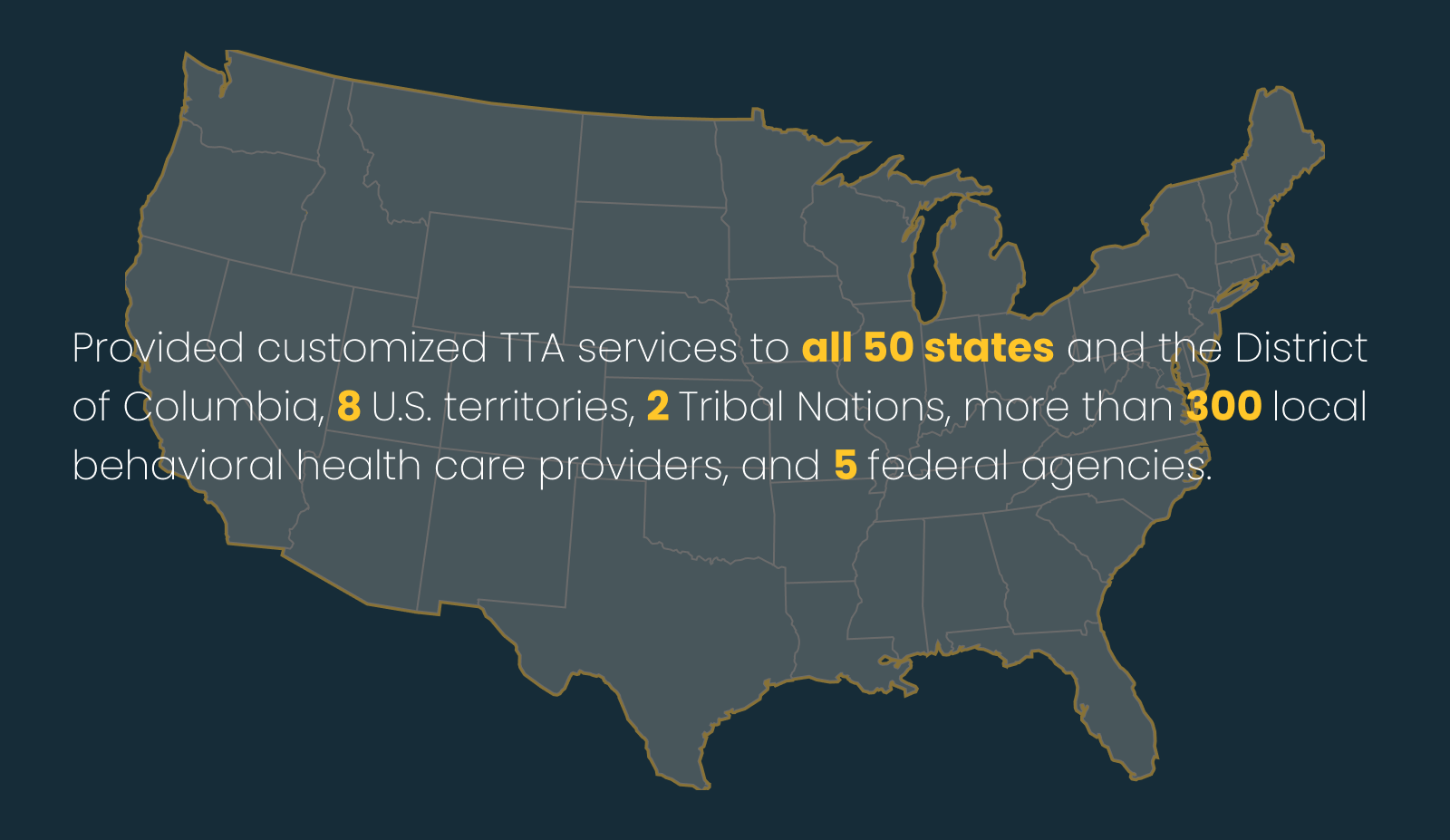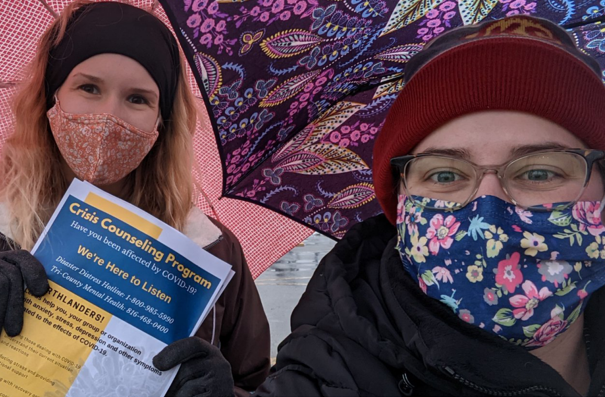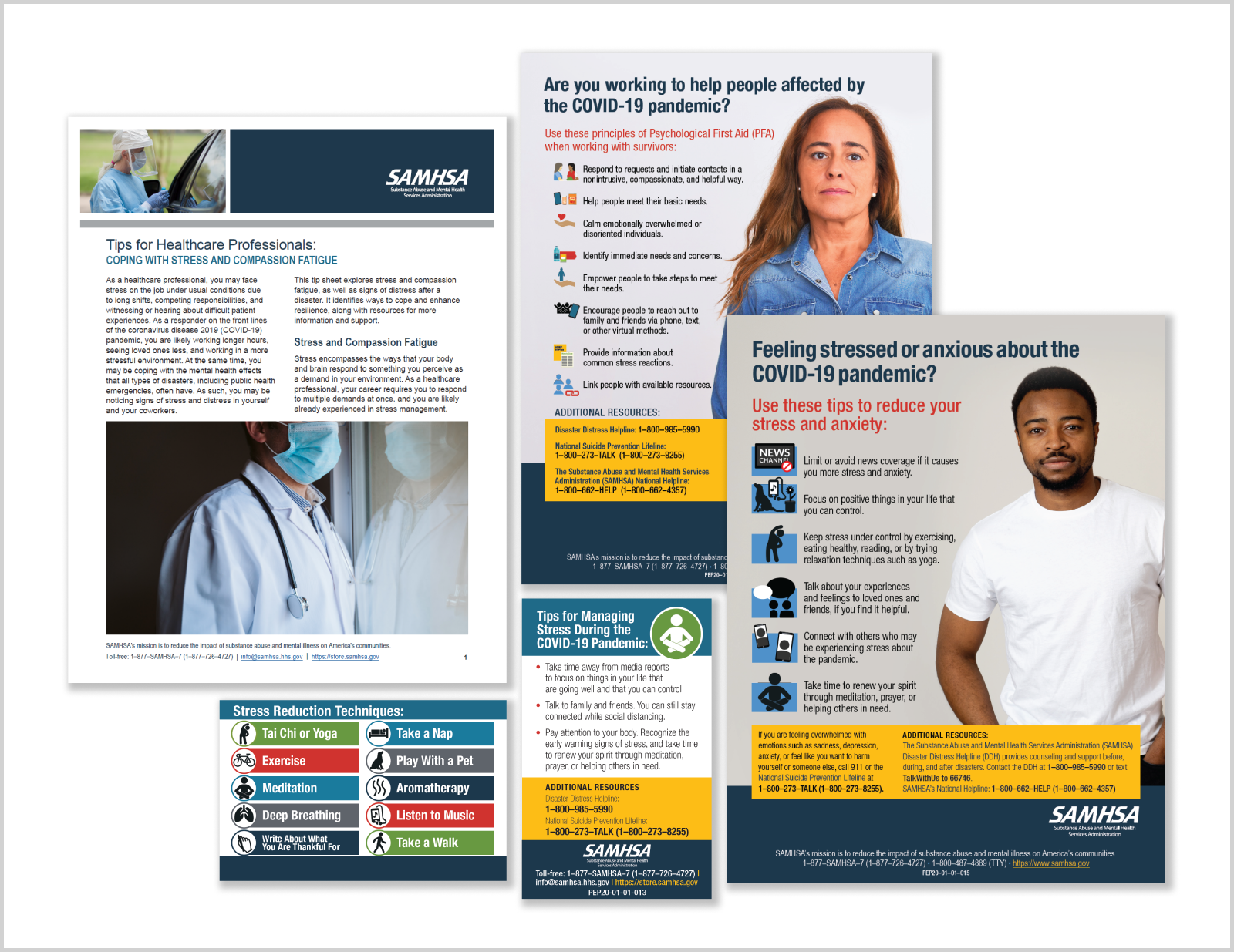Supporting the nation's mental health during COVID-19

As communities locked down and routines were destabilized, isolation, stress, burnout, and compassion fatigue took a toll on individuals and families, resulting in skyrocketing rates of mental health concerns like depression and anxiety. IQ Solutions collaborated with the Substance Abuse and Mental Health Services Administration (SAMHSA) Disaster Technical Assistance Center (DTAC) to pivot quickly, providing robust support for Crisis Counseling Assistance and Training Program (CCP) grantees under a record-setting 56 federal disaster declarations.
How We Did It — Flexing our Management Approach
Within a week of the declaration of the national public health emergency, we onboarded and trained new and existing staff in disaster behavioral health; developed and started to implement a new strategic training and technical assistance (TTA) plan to provide surge capacity and virtual services; staggered staff working hours to allow for live consultation from Puerto Rico to Guam; reprogrammed funds; brought in experts to draft pandemic-specific coping resources for healthcare workers; and established a regimen of individual and group self-care strategies to prevent burnout, compassion fatigue, and stress disorders on our team.
Consulting with States, Territories, and Local Organizations
IQ Solutions knew the pandemic was going to result in an increased need for TTA services about mental health programs early on, but we had no idea of the scale our work would eventually reach. Throughout the course of the pandemic, we provided TTA and consultation to all 50 states and the District of Columbia, 8 U.S. territories, 2 Tribal Nations, more than 300 local behavioral health care providers, and 5 federal agencies about disaster behavioral health programs and the CCP. Using new, streamlined TTA delivery mechanisms such as increased phone and email coverage to intake and triage requests, a series of 5 webinars, virtual office hours for drop-in consultation, and cross-grant virtual meetings we responded to more than 8,200 TTA requests.

Training Professional and Paraprofessional Crisis Counselors

States, Territories, and Tribes worked quickly to procure federal funds from the CCP to provide crisis counseling to their residents but were almost immediately stopped in their tracks when trying to implement the standard community-based, door to door outreach and face to face counseling programs during rolling lockdowns. Our team filled the gap, providing online training to program staff about how to establish and deliver virtual services. Within three months of the national emergency declaration, we held 5 webinars, training more than 530 participants from state, territory, and tribal agencies on how to stand up their programs using evidence-informed approaches in a socially distanced environment. We also converted five 2-day in-person training curricula for crisis counselors to virtual trainings and hosted 6 online live and recorded trainings that trained more than 1,200 participants on how to provide crisis counseling, psychoeducational, and mental and emotional support.
Creating New Mental Health Resources
All those newly trained crisis counselors and the local and state agencies were working for desperately needed resources for those most at risk from the COVID-19 pandemic and its mental health effects. IQ Solutions rapidly developed and distributed targeted resources in English and Spanish for healthcare practitioners and other essential workers, Black/African American and Hispanic/Latino communities, older adults, and caregivers. As the pandemic lengthened and mental health worsened across the population, we ultimately developed a suite of 16 products for anyone experiencing pandemic-related stress as well as people who were unhoused, children and teens, disaster responders, and people experiencing grief.

Adapting Grantee Data Collection Methods and Reports
Data collection became more important in this unique and challenging environment since understanding the mental health needs arising from the pandemic and the expansion of services was critical for state and federal policy makers. Without changing the intent, burden, or requirements of previously approved data collection tools, our team developed guidance and provided TTA to 96 grant programs on how to use the forms to capture data from individual, family, and group crisis counseling encounters and psychoeducational services delivered via telehealth, online meeting platforms, social media channels, web- and phone-based chats, mass media messaging, and hotlines.
Contact.
We love to meet like-minded people. Do you have a project you would like to chat about?